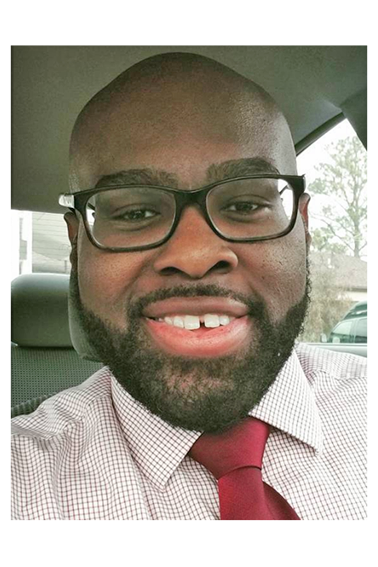Isaiah C. Moore
Ph.D Student, School of Education
Expected Graduation: May 2024
Program Area: Educational Leadership, Policy and Justice
 Education
Education
- Ph.D. in Education: Educational Leadership, Policy and Justice, Virginia Commonwealth University (May 2024)
- M.A.Ed. in Secondary Education: Curriculum and Instruction, The College of William and Mary (August 2016)
- B.A. in English, Morehouse College (May 2011)
- Certificate in Public Law, American University (December 2009)
Line of Research
My research examines federal, state, and local educational policy directives and their effects on minority student achievement at the secondary schooling level.
Selected Research and Scholarship
-
Moore, I. (2023, May). bell hooks Unplugged, Uncensored, Unadulterated: scholar-practitioners’ work and vision of education as practice of freedom. American Research Education Association Conference. Chicago, IL.
-
Ferguson, T. & Moore, I. (In preparation). Underrepresented, Misunderstood, and Mischaracterized: Demystifying the Experiences of Black Girls in Rural Schools.
-
Naff, D., Ferguson, T., Jefferson, A., Moore, I., & Lenhardt, J. (In preparation). Equitable Access and Support for Advanced Coursework - Case study.
Biography
Isaiah Moore is a Ph.D. student in the Educational Leadership, Policy, and Justice program at Virginia Commonwealth University. He is a Research Assistant on a Spencer Funded Grant exploring race-conscious education policies and adaptive anti-discrimination in a divided, multi-racial democracy. Prior to doctoral studies, he attended Morehouse College and received a Bachelor of Arts in English. Soon after he obtained his Masters of Arts in Education from the College of William and Mary’s School of Education. Isaiah then worked as a Lead 8th grade English teacher. Drawing upon his experiences as a public school educator, Isaiah developed a line of research that investigates the intersections between communities and Full-Service Community School instruction, particularly how gentrification and policy discourse impacts community cultural wealth and policies that govern Community-Connected Instruction. His other areas of interests are school segregation, learning in non-traditional spaces, education federalism, the sociology and micropolitics of education, and curricular reform.
What does the Holmes Scholars Program mean to you?
Holmes Scholars represent encouragement, exposure and vision. Pursuing this doctoral degree in a program composed of very few people that look like me could be an isolating experience. Not to mention, doctoral work is arduous. Nonetheless, all of this is made easier when considering the support I have as a scholar. This journey has been taken by many before me, and those individuals are the same people who mentor me from day to day. It is their presence that allows me to believe that earning a tenured track position at an R1 institution is attainable. Being from a Black man from a low socioeconomic neighborhood, I rarely came in touch with individuals like this, so the mentorship is beneficial in helping me shape my goals. Lastly, these valuable interactions give me insight as to what my life can look like in the future. It is for these reasons that I am excited to take on the challenge of doctoral work.